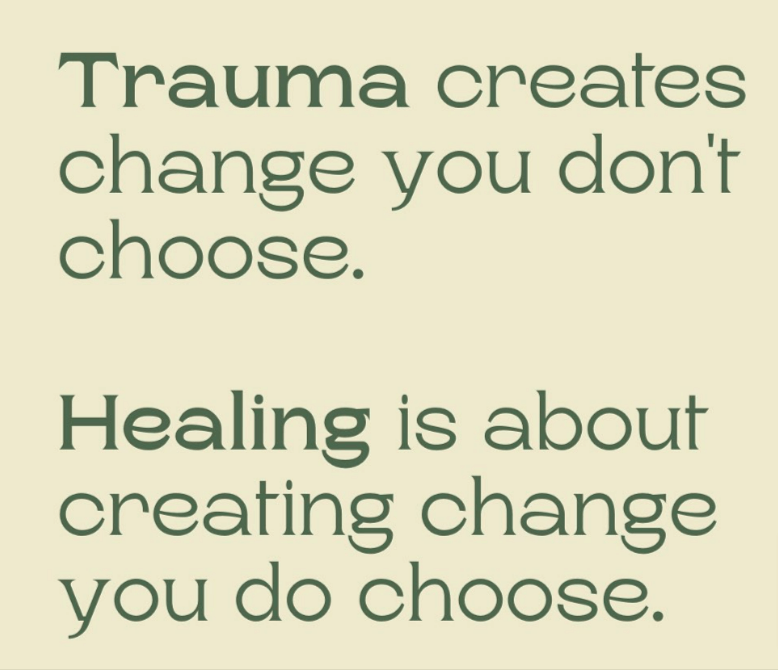Trauma and dual diagnosis affect millions globally and are closely related. Trauma from abuse, neglect, accidents, or natural disasters can affect a person’s mental and emotional health for years. Dual diagnosis involves a mental health issue and substance abuse or addiction.
Trauma victims are more prone to suffer mental health and substance abuse disorders, according to research. Trauma and dual diagnosis are complicated, encompassing biological, psychological, and environmental aspects.
Understanding trauma and dual diagnosis is essential for treating and supporting persons with these challenges. This article will examine how trauma and dual diagnosis are linked and how this knowledge might aid individuals in need.
What is Dual Diagnosis?
When an individual has both mental health and drug use disorders, they are said to have a dual diagnosis. It’s a complicated illness that calls for simultaneous treatment of both disorders. Because the symptoms of one condition can amplify those of the other, people with dual diagnoses often have a far more difficult time getting better and staying better.
As an example, a person with both depression and a substance use disorder may find it more challenging to cease using substances since their depression makes their depressed episodes more intense and stay longer while simultaneously increasing their use of the substances.
When treating a patient with a dual illness, it is important to take a holistic approach that takes into account the interplay between the two conditions.
What is Trauma?
Trauma is defined as an occurrence or encounter that is so upsetting that it leaves the victim unable to function normally. A wide variety of events, such as natural disasters, violence, abuse, accidents, or the loss of a loved one, can cause trauma, which can manifest in a variety of ways, including bodily, emotional, and psychological harm.
Long-term consequences on mental health, such as anxiety, depression, PTSD, and other psychological illnesses, are possible after experiencing trauma. Psychological counseling, pharmaceutical assistance, and other forms of psychosocial support are common components of trauma treatment plans.
The Link Between Trauma and Dual Diagnosis
Those who have been through traumatic experiences are more vulnerable to the onset of a substance use disorder or other mental health issues; thus, there is a strong correlation between trauma and dual diagnosis. Substance abuse and alcohol consumption are common coping mechanisms for people dealing with the emotional fallout of trauma.
Drug abuse can make it much more challenging for people to deal with the emotional and psychological effects of trauma. In addition, those who struggle with addiction may be more vulnerable to experiencing trauma as a result of their drug or alcohol use.
Therapeutic approaches, such as cognitive behavioral therapy (CBT), trauma-focused therapy, and medication-assisted treatment, can be useful in treating those with a dual diagnosis since they take into account the patient’s specific needs and allow for a more holistic approach to recovery (MAT).
The Effects of Trauma on Mental Health
1. Trauma’s Effects on the Brain and Mental Health
Trauma and its impacts on the brain and mental health: Trauma can have serious and long-lasting consequences for both. The body’s fight-or-flight response, triggered by traumatic circumstances, involves a cascade of physiological and psychological reactions.
Changes in the amygdala (the brain’s fear center) and the prefrontal cortex (which regulates emotions and decision-making) and disruptions in neurotransmitter systems can contribute to anxiety, depression, and other mental health disorders if this continues over time. Problems with emotion management, memory, and interpersonal connections are all possible outcomes of traumatic experiences.
2. Types of Trauma
A variety of traumatic experiences can have an effect on mental health:
- Childhood trauma: Neglect, physical or emotional abuse, or seeing violence as a child can all have long-term impacts on a person’s mental health and well-being.
- Physical or sexual abuse: Those who have survived physical or sexual abuse may be at risk for a variety of psychological problems.
- Combat trauma: Combat veterans are at increased risk for developing post-traumatic stress disorder (PTSD), major depressive disorder (MDD), and other mental health issues.
- Accidents or natural disasters: Anxiety, sadness, and post-traumatic stress disorder (PTSD) are just some of the mental health issues that may arise after experiencing a traumatic incident, such as a vehicle crash or a natural disaster.
3. Common Trauma-Related Mental Health Conditions
Many mental health issues, such as: can be exacerbated by traumatic experiences.
- PTSD: Post-traumatic stress disorder (PTSD) is triggered by exposure to or experiencing extreme trauma. Flashbacks, nightmares, and persistent thoughts about the traumatic event can all be symptoms, as can the avoidance of stimuli and emotional numbing.
- Anxiety: Those who have been through traumatic experiences often suffer from anxiety disorders such as GAD, PAD, and social anxiety. Anxiety, fear, and the avoidance of triggers are all possible symptoms.
- Depression: Feelings of melancholy, hopelessness and a lack of interest in previously enjoyed activities are all symptoms of depression, which can be exacerbated by traumatic experiences.
- Borderline personality disorder (BPD): Relational, emotional, and mental instability are hallmarks of borderline personality disorder (BPD). Many people with borderline personality disorder (BPD) report having experienced trauma, often in childhood.
Therapy, medicine, and other support services can all be useful in treating mental health issues brought on by trauma, allowing patients to better manage their symptoms and go forward with their lives.
Substance Use as a Coping Mechanism for Trauma
1. The Link Between Trauma and Substance Misuse
There are a number of pathways from trauma to substance abuse. Secondly, people who have been through traumatic experiences may use drugs and alcohol to cope with the associated feelings of worry, despair, and insomnia.
A person who has experienced trauma may turn to substance abuse as a means of coping with the distressing thoughts and feelings that arise in response to recalling or thinking about the traumatic event.
Second, brain chemistry can be altered by trauma, leaving survivors more vulnerable to addiction. Substance use disorders are frequently co-occurring with mental health illnesses such as post-traumatic stress disorder (PTSD) and depression.
2. Alcohol and Drug Use as a Coping Mechanism for Trauma
Drug abuse can help trauma survivors cope by temporarily reducing feelings of emotional anguish, worry, and discomfort. Substance abuse provides some people with a chance to momentarily numb the pain of traumatic memories and regain a sense of agency.
Some people may develop an addiction because they believe that doing so is the only way they can manage their symptoms and emotions.
3. Trauma Patients Generally Take These Drugs
Substances such as alcohol, cannabis, painkillers, and stimulants are frequently utilized by people with trauma-related disorders. Self-medicating with alcohol is a common approach to dealing with emotional distress, and marijuana may be used to deal with post-traumatic stress disorder symptoms like heightened vigilance and troubling dreams.
Opioids are commonly used to dull both physical and emotional pain, while stimulants like cocaine and methamphetamine are sometimes used to boost energy and alertness, which can momentarily treat both sadness and weariness. Substance abuse, however, has been shown to worsen trauma symptoms and lead to lasting harmful effects.
Recognizing Dual Diagnosis in Trauma Survivors
1. Dual-Diagnosis Symptoms in Trauma Survivors
The term “dual diagnosis” describes a situation in which both mental health and substance abuse disorders are present. Those who have survived trauma are more likely to experience dual diagnosis because they may use substances to dull the emotional anguish and discomfort they are feeling. Resilient individuals who have experienced trauma often show symptoms of a dual diagnosis, such as:
- Strong feelings of fear, sadness, or rage in response to memories of traumatic events
- Abuse or dependence on a psychoactive substance, such as alcohol or drugs
- Instability in controlling feelings and actions
- Preventing oneself from encountering reminders of or talking about traumatic events
- Dissociative episodes or flashbacks
- Conduct that causes injury to oneself or to others, or thoughts of suicide
- Physical health issues, such as persistent pain or medical diseases, that occur simultaneously
2. Challenges in Diagnosing and Treating Dual Diagnosis in Trauma Survivors
There are a number of issues that can make it difficult to diagnose and treat dual diagnosis in trauma survivors.
- Because of the stigma and guilt that surround mental health and substance use issues, many people avoid getting help or disclosing their symptoms to medical professionals.
- Symptom overlap between substance abuse and mental illness can make accurate diagnosis challenging.
- The scarcity of dual diagnosis treatment options and trauma-informed care.
- Mental health and drug use disorders can be further complicated by the presence of comorbid physical health concerns.
- Substantial deficits in the availability of mental health and substance abuse treatment services, especially in underprivileged and marginalized groups.
- Insufficient knowledge and experience in trauma-informed care and dual diagnosis therapy among healthcare providers.
Dual Diagnosis and Trauma Therapy Methods
1. Dual Diagnosis Therapy and Trauma-Informed Care
Many people who struggle with substance abuse or mental health issues also have a history of trauma, making trauma-informed care an integral part of dual diagnosis treatment. Care that is trauma-informed acknowledges the impact that trauma can have on a person’s life and takes steps to address it in a way that is supportive, reassuring, and ultimately powerful.
Healing, resilience, and recovery can be encouraged by providing a setting that is both supportive and empathetic, taking into account the person’s unique history and needs.
2. Treatment Options for Trauma and Co-Occurring Disorders
Treatments for dual diagnosis and trauma that have proven successful in the past few decades include:
A. Cognitive-Behavioral Therapy (CBT)
Resolving destructive patterns of thought and action is the primary goal of this treatment modality. Substance abuse and post-traumatic stress disorders have both benefited from this treatment method.
B. Eye Movement Desensitization and Reprocessing (EMDR)
Rapid eye movements are used in Eye Movement Desensitization and Reprocessing (EMDR) therapy, which helps people deal with and overcome painful experiences. There is evidence that it helps cure PTSD and other conditions stemming from traumatic experiences (PTSD).
C. Dialectical Behavior Therapy (DBT)
The goal of this treatment modality is to equip patients with the tools they need to better regulate their emotions, strengthen their interpersonal connections, and curb their propensity for reckless behavior. Borderline personality disorder, which is frequently seen in people who have experienced trauma, has been shown to respond positively to this treatment.
D. Mindfulness-Based Stress Reduction (MBSR)
Reducing stress and anxiety is the primary goal of this style of therapy, which emphasizes training in mindfulness and relaxation techniques. Many mental health issues, particularly those stemming from trauma, have responded positively to this treatment.
3. Dual Diagnosis and Trauma Medicines
It is common practice to combine medication and therapy when dealing with a dual disease or traumatic experience. Depression, anxiety, and post-traumatic stress disorder (PTSD) are all mental health issues that can be frequent among people who have experienced trauma and/or have substance use disorders; these symptoms can be managed with medication.
Medication is often an integral part of a treatment plan, but it is crucial to work closely with a healthcare practitioner to ensure its safe and effective use.
II. What is Trauma?
- American Psychological Association (APA): https://www.apa.org/topics/trauma
III. Understanding Dual Diagnosis
- SAMHSA: https://www.samhsa.gov/find-help/disorders
- NAMI: https://www.nami.org/About-Mental-Illness/Common-with-Mental-Illness/Substance-Use-Disorders
IV. Trauma and Dual Diagnosis: The Connection
- Substance Abuse and Mental Health Services Administration (SAMHSA): https://www.samhsa.gov/sites/default/files/programs_campaigns/national_survey_drug_use_health/pdf/nsduh-ppt-09.pdf
- National Institute on Drug Abuse (NIDA): https://www.drugabuse.gov/publications/drugfacts/comorbidity-substance-use-disorders-other-mental-illnesses
VI. Treatment for Dual Diagnosis and Trauma
- Substance Abuse and Mental Health Services Administration (SAMHSA): https://www.samhsa.gov/treatment/substance-use-disorders
- National Institute on Drug Abuse (NIDA): https://www.drugabuse.gov/publications/research-reports/common-comorbidities-substance-use-disorders/part-3-treatment
VII. Addressing Stigma in Trauma and Dual Diagnosis
- American Psychiatric Association (APA): https://www.psychiatry.org/patients-families/stigma-and-discrimination
- National Alliance on Mental Illness (NAMI): https://www.nami.org/About-NAMI/NAMI-News/2019/NAMI-Releases-New-Report-on-the-State-of-Mental-Health-in-America












